What the heck should we do with our lives? Many of us find the question of life purpose becoming more difficult to answer. (Especially if you’re a younger person in a developed country.) In the past, people had two major ways to answer the question:
- Biology provided the first answer—to survive we needed to secure our food and shelter… and we needed to raise kids that would take care of us when we’re older. However, today more and more of us don’t live in fear of deprivation.
- Tradition provided the second answer—we absorbed the values, morals and beliefs of our elders, which shaped our desires. I mean, if you believed that doing something would please the literal Creator of the universe, then wouldn’t you want to do that more?!
…But today many people view life through a lens that is materialistic and scientific. So our rationalistic thinking can quickly undermine many past cultural beliefs, myths and traditions. To put it simply, religion and belief in God is less common now than 50 years ago (among young people in rich countries). Unfortunately, we are also throwing away a lot of wisdom that was hidden within our myths that successfully guided generations of our ancestors about how to live.
In his book 12 Rules for Life, Jordan Peterson tries to answer this modern lack of meaning. He says we cannot simply accept nihilism or moral relativism (a belief that nothing matters), because some ways of living clearly work better—for ourselves (especially our long-term selves), for the people around us, and for our society as a whole.
So in this summary/commentary on this book, we will be taking a look at some of the most important principles and stories that Peterson shares. His most important principle is that we must take responsibility for Being. This means we must aim to create less suffering and a better order in the world for everyone, starting in our own lives. Then, we must look deeply into our traditions and myths, because there we can find more timeless rules to help guide us further. If you do this, then meaning can emerge in your life that outweighs life’s inherent suffering.
Who is Jordan Peterson?
In the last few years, Jordan Peterson (author site) became famous for his critique of the “identity politics” which are becoming more prevalent in the left wing. This public stand won him many devoted fans, but also much negative publicity. From 2018-2020, he retreated from public life to deal with difficulties including his wife being diagnosed with cancer and himself suffering extreme side effects from anxiety medication he was taking.
Before that Dr. Peterson had an accomplished career:
- He was a Professor at Psychology at the University of Toronto.
- He was at Harvard before that as an associate professor and researcher.
- He’s also had a 20+ year long clinical psychology practice.
(Since Jordan Peterson is often labelled as “alt right,” I should point out the foreward in this book was written by Dr. Norman Doidge—an author whose Jewish family survived the Holocaust. About Dr. Peterson, he wrote, “I had never before met a person, born Christian and of my generation, who was so utterly tormented by what happened in Europe to the Jews, and who had worked so hard to understand how it could have occurred.”)
1. Dominance Hierarchies: Straighten your posture and your self respect
Today in universities it is common to hear that almost everything is “socially constructed,” especially when it comes to power differences between people. Yet Dr. Peterson points out that even the most basic animals like lobsters function through status and dominance hierarchies. And so it is ancient biology, not cultural conditioning, that makes us acutely aware of social hierarchies.
Here are a few important facts about lobsters:
- A lobster brain works similarly to the human brain, at least on the most fundamental levels. This is because both humans and lobsters evolved from a common ancestor hundreds of millions of years ago. Of course, humans later evolved to have more complex layers of brain which let us do math and philosophy.
- A lobster follows complex rituals to create a social dominance hierarchy with other lobsters. Those at the top of the hierarchy are usually the fiercer and stronger ones. Their status gives them access to the best territory and mates. Lobsters at the bottom must settle for what is left over and their lives tend to be more difficult.
- A lobster with high status has much higher levels of serotonin in their brain. Serotonin is a brain chemical that is also found in human brains. More serotonin makes us feel good. In fact, people with depression often take medication called SSRIs which increases their levels of serotonin. As it turns out, humans with higher socioeconomic status also have higher serotonin, just like lobsters.
- A lobster with high status has more upright “confident” body language, compared to a lobster with low status. Dr. Peterson has found that people with a low estimation of their social worth also tend to have a certain body language. Their posture is slumped, their shoulders are turned inwards and their eyes are pointed down towards the floor. (I can definitely agree with this, as someone who spent half my life being painfully shy!)
Robert Sapolsky is a Professor of Biology and Neurology at Stanford University. He has been studying how brains work for years, including spending years in the jungle studying baboons. He also found a strong link between a baboon’s social status and their neurochemistry.
Low status baboons are measured to have higher levels of stress chemicals in their body than high status baboons. These chemicals cause the low status baboons to be more anxious and vulnerable to illness. As it turns out, the same connection can be found in humans. People with lower socioeconomic status have higher stress chemicals than those with high status.
Learn more in our summary of his book Behave by Robert Sapolsky.
In the lobster world, low status often becomes a negative feedback loop. A lobster who loses a dominance battle will end up with lower levels of serotonin. As a result, its posture becomes more scrunched up which makes the lobster look smaller and weaker. So it is more likely to lose the next dominance battle, then the next one, and the next one. We humans can also become stuck in negative feedback loops in our lives. For example, a person becomes depressed, so they begin isolating themselves from others, which makes them feel even worse, and so on…
Dr. Peterson offers a couple of practical tips to help us break those feedback loop and instead begin a positive upward cycle in our lives:
- Get your sleeping and eating habits right first. Dr. Peterson always asks his clients about this because it has a dramatic effect on our mood and brain. He says to make sure you get at least 8 hours of sleep, wake up at the same time each day, have a stable routine, and eat a breakfast based on fat and protein (that doesn’t spike your blood sugar).
- Stand up straight and tall. Studies show our body can actually affect our emotions. For example, researchers found that smiling made people feel happier. Furthermore, when you carry yourself as if you respect yourself, then others will respond to you better also. You’ll absorb their more positive reactions and your own view of your status will increase. Now you’re on a positive feedback loop!
In this book, the first rule is “Stand up straight with your shoulders back.” This simple tip (along with sleeping and eating right) can put our life on the right track. Your own self respect will begin to increase, people will respond to you better, and even your brain’s level of serotonin may increase.
2. The Right Focus: Only compare yourself to your past self
For most of human history, people lived in small communities with limited communication. Over a lifetime, the average person may have met only a few hundred people. So it was easier for one person to be the best at something and occupy a valued position within their community. One person could be the local shoemaker, another was the carpenter, another was the priest, and so on.
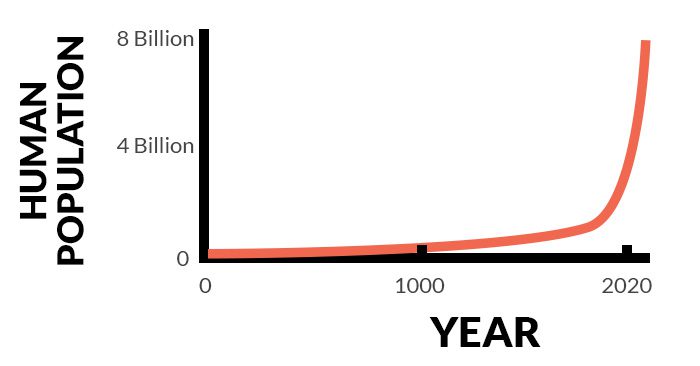
But now we live in a society that is globally connected, so we are exposed to a lot more people than our ancestors. This means no matter how good you are at something, you can always find someone better than you in the larger world. We are also constantly being shown media and advertising that seems to be full of people who appear to be so successful, beautiful, charming, etc. So today, many of us can be overwhelmed by a critical voice inside of us that is constantly comparing us negatively to others.
Dr. Peterson offers a few tips to guide our inner critic:
- Success isn’t black and white, but shades of grey. So be careful using words that strongly oversimplify the truth, like “I am a success or failure.” It’s always somewhere in the middle.
- Success can be broad rather than narrow. A lot of the time we criticize ourselves by focusing on one small area of our life and comparing that to others. We often forget there are many games we are playing simultaneously, like in our career, family, friendships, hobbies, etc.
- Success begins with our unique life situation. Respect that everyone has a different starting point, with our own unique advantages, disadvantages, talents and weaknesses.
- Success can be achieved in many parallel ways. If one way doesn’t work for you, then you can always choose another. Society values many types of careers or you can create your own game through self employment.
- Success must often be sacrificed for growth. Delayed success could be a sign that someone is trying new things rather than staying comfortable in what they’re already good at.
In the long term, Peterson says the direction we are moving towards is far more important to our happiness than judging exactly where we are right now. Because what we are aiming at changes how we perceive the world. When our focus is different, then we will notice and pay attention to different things.
In one dramatic study, people were told to count the number of times a basketball was passed between a group of teenagers on a television. Because they were focused on the ball, half the participants totally missed a man in a gorilla costume walking right in the middle of the video! So if we focus on the highest positive value we can imagine, and we move towards that, then the world we perceive will be very different.
Jordan Peterson’s rule number four is “Compare yourself to who you were yesterday, not to who someone else is today.” We must regulate our inner critic by understanding that success is never black and white, we all play multiple games in life, and current success should often be sacrificed for long-term growth.
3. Chaos and Order: Always have one foot in the unknown
The great psychologist Carl Jung said that archetypes (PsychologistWorld.com) are fundamental patterns or images which are found across cultures. Jordan Peterson says these archetypes are often based on humans trying to fit the world into the mental categories that our animal brain is programmed with. For example, one of the most basic mental categories we all have is sex, male and female. Also, one of the most basic aspects of reality is the existence of order and chaos. So to understand chaos and order more effectively, we fit it into the categories of male and female:
- Chaos is the unknown. It is all the parts of the world that we have not yet explored. It represents potential and novelty. However, chaos is also often dangerous and disturbing. In myths, chaos is symbolically feminine, often represented as mother nature or a force of destruction. Why is chaos female? Perhaps because new things—new beings—come from mothers.
- Order is the known. It is all the parts of the world that we have explored and mastered. It means predictability and safety. However, order can also become boring and even socially oppressive. In myths, order is symbolically masculine, often represented as God the father or a tyrannical king. Why is order male? Perhaps because virtually every social order in the past was led by men.
Jordan Peterson’s first book, Maps of Meaning, took him almost 15 years to write because it aimed to prove that great cultural myths are still as true as ever. Dr. Peterson claims myths were never meant to provide a scientific explanation of the world, but a moral map for how we should act.
I found that book very dense, yet rewarding to read because Peterson dives deeper into the meaning behind specific religious myths figures. For example, he shows how the Great Mother is a common archetype found in Christianity as Mary the Mother of Jesus, in Egyptian mythology as the Goddess Isis, in Hinduism as the Goddess Kali, etc.
Learn more in our summary of Maps of Meaning by Jordan Peterson.
Chaos and order: these basic elements of reality are represented as characters in many of our cultural myths, legends and stories. Why do some myths get passed down generation after generation for thousands of years? Because they show us how to balance chaos and order in our world. In medieval legends a dragon was often sitting on a big pile of gold in a cave or castle. The heroic knight entered the cave, slayed the dragon and got the gold.
How about I give you a more modern example? Growing up, I loved the Harry Potter books. Now I realize the stories are so compelling for millions of people because they fit into ancient archetypes. When Harry learns Voldemort is planning something evil, he doesn’t hide in a corner. Although Harry feels scared, he approaches Voldemort/chaos anyway and restores order to the world.
An admirable hero shows us the right pattern to copy in our lives. We must always live on the edge of chaos to continuously make our lives better. We must cautiously approach the unknown if we are ever to learn new things of great value.
That’s why many teenagers are instinctively drawn to activities like skateboarding and they are always encouraging each other to try more daring tricks. By trying difficult things and failing, they become better at skateboarding over time. In fact, we become more competent at anything through leaning into the unknown rather than staying safe. This is true whether we are skateboarding, playing piano or programming apps.
Rule eleven is: “Do not bother children when they are skateboarding.” When we’re living on the edge of chaos and order, that’s when we usually feel meaning. That is when we’re at the edge of our current abilities or knowledge and we are becoming more competent.
4. Start Low: Begin with cleaning your room
As a university professor, Peterson often talked with young student who had strong opinions about politics, economics and how to reorder the world. In fact, most of us probably have strong feelings about which political policies are the best. However, if your own life is not yet sorted out, then what authority do you have to tell the world what it should do?
So when Jordan Peterson is speaking in from of an audience of young people, he often tells them to “Clean up your room Bucko!” (In fact, this became one of his best knowns memes.) It’s about starting to bring order to your life with a simple and achievable task. Most of us can clean our room in 20 minutes to one hour, depending messy it is.
After one part of your life has been transformed from chaos to order, then you can expand that order outwards. See, once you make a little bit of progress in sorting out your life, then many of your larger problems will start to feel achievable, even those problems that you are now scared to look at. So after your room is tidy, then you can start thinking about bigger things like creating a productive daily routine, writing down a long term strategy, etc.
Marcus Aurelius was a Roman emperor who lived almost 2000 years ago. Although he was a powerful ruler, Marcus also struggled with the same inner problems we all do, such as self discipline. In his journal, he wrote that he was having trouble getting out of bed in the morning because it felt too nice. He motivated himself by saying this: “So you were born to feel ‘nice’? Instead of doing things and experiencing them? Don’t you see the plants, the birds, the ants and spiders and bees going about their individual tasks, putting the world in order, as best they can?”
You can see there are almost two different people inside his head: one Marcus that just wants to feel nice, and another Marcus who wants to be a leader that is good, useful and respectful. We must all struggle against our baser instincts every day. That’s simply part of being a human. Marcus’s writing eventually became a foundation for the philosophy of Stoicism, which has helped many people to be their best self.
Rule six is “Set your house in perfect order before you criticize the world.” If we want to create a better order in the world, we’d best start with what is closest to us. Such as by cleaning your room, Bucko.
5. Things Fall Apart: Put life back together with truthful speech
Chaos can always re-emerge in our world, no matter how perfect an order we try to create. This is part of the meaning behind the Genesis story. God himself created a beautiful Garden of Eden to protect Adam and Eve. Yet chaos still emerged as the snake who told them to eat the forbidden fruit. Symbolically, this truth is represented in the Yin and Yang symbol, with the small black dot within the white part of the circle, and vice versa.

Throughout the early Biblical stories, it is a repeating pattern for society to fall apart. (With the Flood, the Tower of Babel, etc.) When things go wrong, people can choose to take responsibility or blame God for what happened. Taking responsibility means recognizing how our own inattention or carelessness helped to manifest the problem. (In fact, the original greek definition of sin is “to miss the mark” like an archer missing the bullseye.)
In our personal lives, when things go wrong, we can only set them right again through careful attention and truthful speech. Dr. Peterson always guides his therapy clients to be more precise in their speech. For example:
- If you’re having a disagreement with someone, you will resolve the problem faster by speaking precisely about what is wrong and how you want it to change, rather than giving general criticism.
- If you’re not where you want to be in life, you must be precise about where you believe things went wrong and how you must adapt. Sometimes our lives don’t go the way we want because we didn’t offer the right sacrifice to the universe. (Like sacrificing the pleasure of social media so we can achieve a better future.)
- If you’re being tortured by recurring past memories, you must also speak precisely. Peterson says memory is not really there to help us remember the past, but to help us stop bad things from happening again. So you need to state precisely what you will change in your behavior to stop it happening again in the future.
On a cultural level, a refusal to recognize error causes mass evil, injustice and death. In the Soviet Union, millions of people were sent to forced labor camps called gulags (History.com). The Russian author Aleksandr Solzhenitsyn revealed how the collective evils that happened in the Soviet Union could be traced back to each individual’s refusal to admit the miserable truth of their daily experience. Everybody lied because they were scared. They said life was great when it was not. Eventually this deceit made their society spiral out of control.
If you ever wonder how perfectly ordinary, decent people could find themselves doing the terrible things the gulag camp guards did, you now have your answer. By the time no seriously needed to be said, there was no one left capable of saying it.
Of course, it’s always better to confront problems early on, while they are still small. It’s like the hero in a story going to confront the dragon in the cave, rather than waiting for the dragon to become stronger and attack the town. In the same way, small problems that we avoid usually fester. They grow larger until they become a devastating crisis in our life like divorce, illness or bankruptcy. So if something bothers you, it’s best to speak up about it as soon as possible.
Rule eight is “Tell the truth—or at least, don’t lie” and rule ten is “Be precise in your speech.” When things fall apart, we can only put them back together by admitting error and speaking carefully. It is also best to confront problems while they are small, before they grow into personal catastrophe or social tyranny.
6. True Listening: Risk being transformed by counter-opinions
Jordan Peterson says in his therapy practice he doesn’t usually give advice, but he aims to have a real conversation. Many people have nobody nobody who is really able to listen to them. This is a problem because other people help us remain sane. We are constantly noticing how other people are reacting to what we say, then adjusting our beliefs.
A therapist can be society’s mirror for their patient. Dr. Peterson is always responding in some way to his client, either with a verbal statement or involuntary non-verbal expressions. To help ensure he’s giving the right feedback, Peterson focuses on wanting the other person’s life to be better.
True listening is rare because it is dangerous. If we really understand another person’s point of view, then it is us who may be transformed. And this may upset our entire life’s order, including our goals and desires. So in a conversation it is much safer for us to justify our previous beliefs. So that’s what most people do, especially in conversations related to politics or economics.
The mega-popular self-help author Stephen Covey said that we should all “Seek first to understand, then to be understood.” When most of us have a disagreement, we don’t really listen because we are only waiting for our turn to speak. Other people usually sense this and feel resentment.
But what if we tried to really understand the other person’s concerns? We could even demonstrate our understanding by repeating their concerns back to them in our own words. If you do this in good faith, then you’ll usually find they become open to hearing your side of the story. However, it’s also possible that you will be the one who is changed and influenced. There’s the danger.
Read more in our summary of The 7 Habits of Highly Effective People by Stephen Covey
Peterson’s ninth rule is “Assume that the person you are listening to might know something you don’t.” True listening is rare because we must risk being transformed by the other person, but this is the only way to real communication.
7. Meaning in Tragedy: Have faith Being is intrinsically good
We people suffer. Who can argue with that? Buddha based his teachings on the fundamental truth that “Life is suffering.” The death of Jesus exemplifies the tragedy of life, but also how to voluntarily accept suffering with dignity. After living a sinless life, Jesus was betrayed by his friend, condemned to death by a fickle crowd, beaten brutally, and then carried his cross up a hill to die between two criminals. Yet even at the edge of death he asked God to forgive his killers “for they know not what they do.”
As a child, Peterson’s daughter Mikhaila was diagnosed with a type of arthritis. She went from being a happy fun-loving kid to requiring a wheelchair and powerful medications. Eventually she needed a hip and ankle replacement. Seeing his young child go through years of continual pain caused Jordan Peterson to struggle deeply with the tragedy inherent in life.
Is Being—existence itself—fundamentally good or bad? (Many religious people find a question like this the most difficult to answer: How can a good God allow unexplainable tragedies to happen? …like a young child getting cancer.)
Viktor Frankl is a great psychologist who lived through the German Nazi concentration camps of World War 2. One thing is for sure: he saw an unimaginable amount of suffering firsthand. Yet later he wrote, “If there is a meaning in life at all, then there must be a meaning in suffering. Suffering is an ineradicable part of life, even as fate and death. Without suffering and death human life cannot be complete.”
In those camps, Frankl helped a few of his fellow prisoners avoid suicide. He helped them re-connect to meaning in their lives by pointing their attention to some future responsibility or goal outside of themselves. For example, one man had a child he loved very much waiting for him in a foreign country. The man recognized nobody else could take his unique place as the child’s father. And he knew that he must survive for the child, if not for himself. A different man was a scientist who admitted he still had important work to finish, so he also decided to live.
Learn more in our summary of Man’s Search For Meaning by Viktor Frankl
In the end, Peterson decided that seeing Being as inherently spoiled was a view that could only make life infinitely worse for everyone. It was a line of thinking that led straight to hell. No, the only answer that works is: we must have faith that Being is inherently good. Then we will find meaning in life by trying to lessen suffering for everyone.
Finally, we can also see the goodness in Being not through rationally thinking, but through noticing small moments of grace that happen in our days. In Jordan Peterson’s life, sometimes a neighbour’s cat comes to say hello as he is walking. And for a time, the wonder of Being shines through the experience.
Rule number twelve is “Pet a cat when you encounter one on the street.” This is about noticing the wonder of existence in small daily moments. Ultimately, we must have faith in the goodness of Being despite the tragedies we all face. Then we can work to lessen suffering for all which provides us meaning.
Conclusion
This was a difficult book to summarize! In the end, there were tons of fascinating ideas and points that I had to leave out. I tried to choose some of the most practical lessons to share with you here.
Personally, my favourite part of the book was the idea of chaos and order. Remember it’s about putting your life in order starting at the lowest level like cleaning your room. But also keeping one foot in the unknown so you’re always learning something new and becoming more competent. And I loved how this idea was connected to archetypes found in the greatest myths and stories.


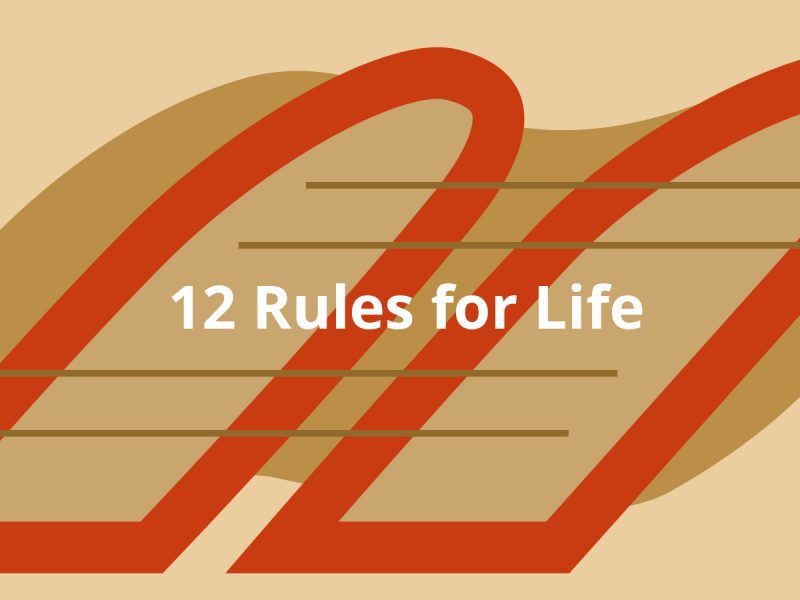
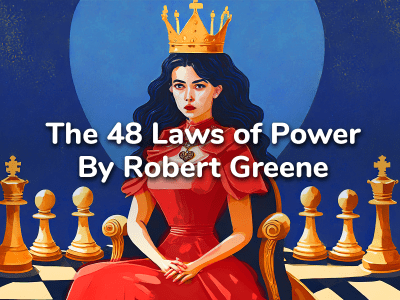








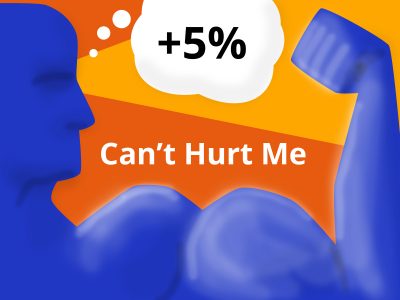


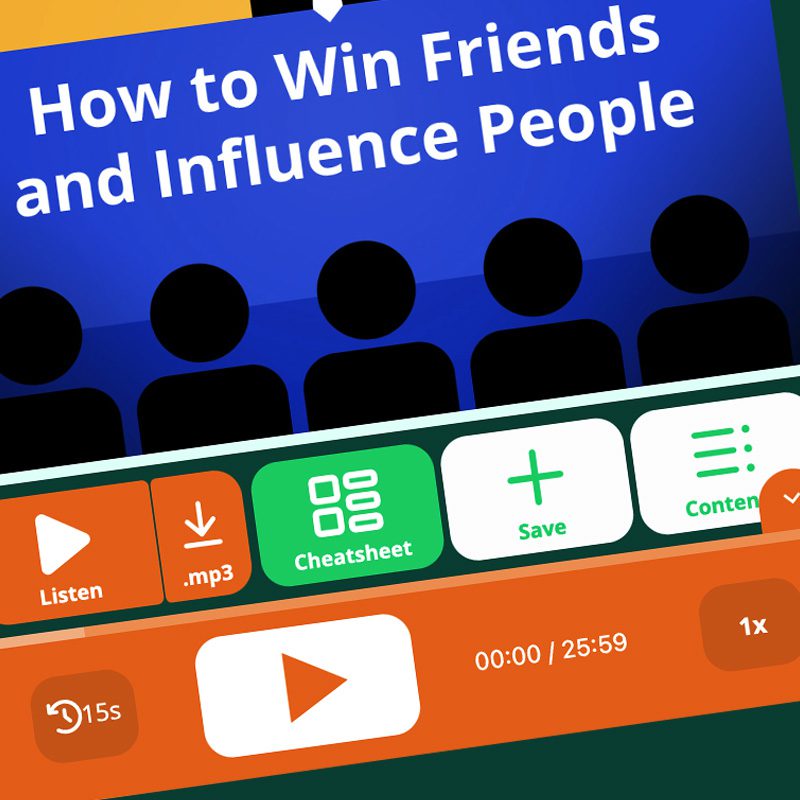
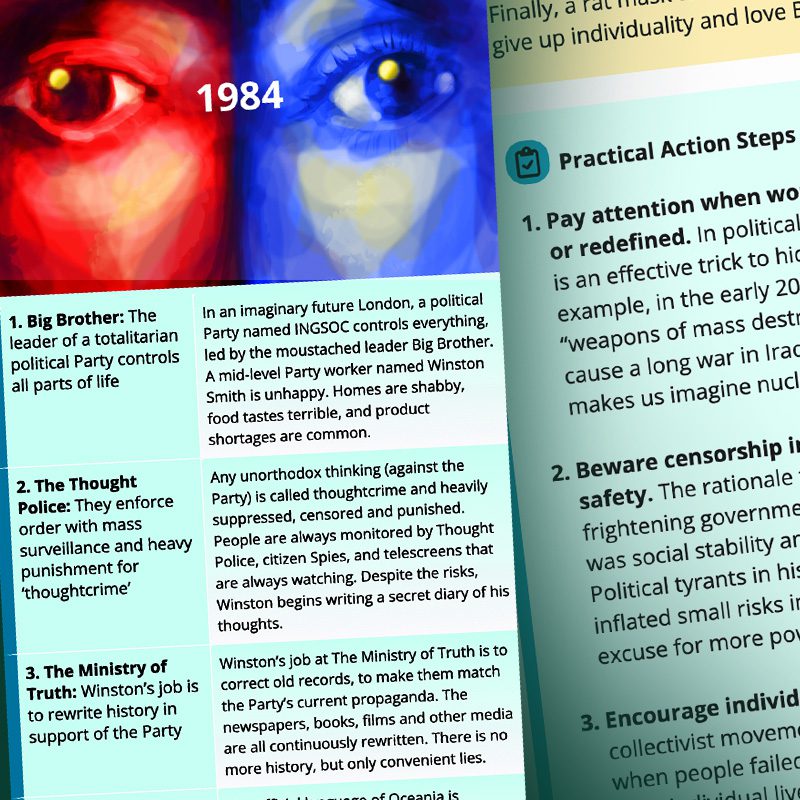


Community Notes